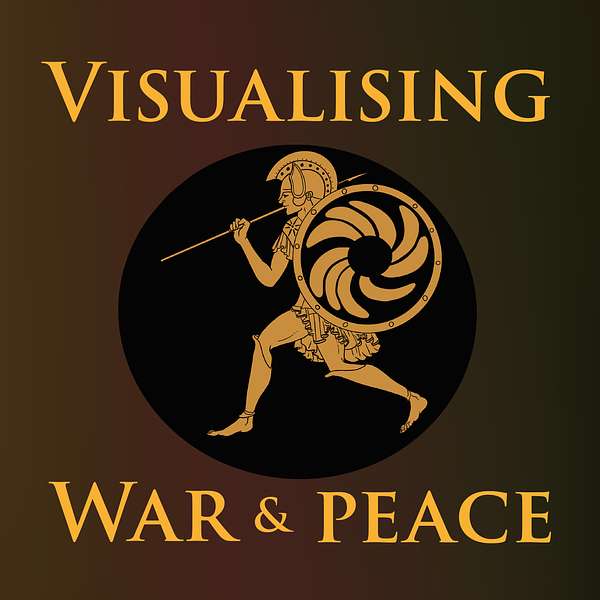
Visualising War and Peace
How do war stories work? And what do they do to us? Join University of St Andrews historian Alice König and colleagues as they explore how war and peace get presented in art, text, film and music. With the help of expert guests, they unpick conflict stories from all sorts of different periods and places. And they ask how the tales we tell and the pictures we paint of peace and war influence us as individuals and shape the societies we live in.
Visualising War and Peace
War-to-Peace transitions with Jaremey McMullin
In this episode, Alice interviews Dr Jaremey McMullin, a Senior Lecturer in the School of International Relations at the University of St Andrews. Jaremey’s research spans a wide range of topics, from ex-combatant disarmament and veteran reintegration to youth peacebuilding and political participation in post-conflict contexts.
His 2013 monograph Ex-Combatants and the Post-Conflict State: Challenges of Reintegration examines disarmament, demobilisation and reintegration policies and experiences via four case studies, in Namibia, Mozambique, Sierra Leone and Liberia. He is particularly interested in the impacts of reintegration and veterans’ assistance programmes on people’s post-conflict identities, and also in the consequences of incomplete reintegration for ongoing conflict transformation. As well as working in Africa, he has examined veterans’ assistance programmes in the US, producing (among other outputs) a short documentary called Silkies (2020) on the prevention of veteran suicide. He has written several reports for the Disarmament, Demoblisation and Reintegration section at the United Nations Department of Peace Operations, and serves on the Research Working Group of the Integrated DDR Training Group.
In the podcast, Jaremey helps us to visualise the war-to-peace transitions experienced by ex-combatants and veterans as life-long journeys, which can be injurious for many. He exposes the myth of 'return' (as if people can simply pick up the threads of their pre-war lives); discusses differences in perceptions and framings of ex-combatants and veterans; and reflects on the limitations of many DDR programmes.
This leads to broader discussion of the hard work of peacebuilding. Among other work, Jaremey has produced a documentary film series on the everyday work of peacebuilding called Liberia: Legacies of Peace. As he explains, the five films ‘profile people at every level of Liberian society engaged in the hard work of war-to-peace transition.’ He has developed a particular interest in youth peacebuilding processes and identities, and his current project, Motorcycling as Peacebuilding in Liberia, examines the experiences of groups of ex-combatant and conflict-affected youth in Liberia who have become motorcycle taxi drivers – overcoming insecurity and marginalisation, and emerging as active peacebuilders themselves.
In exploring Jaremey's work, we discuss the ethics and dynamics of Participatory Action Research (PAR) and Jaremey's efforts to involve young peacebuilders as knowledge-producers and research designers, not objects of study. He sets out his approach in Hustling, Cycling, Peacebuilding and What is the benefit of this project?.
We hope you find the discussion interesting. For a version of our podcast with close captions, please use this link. For more information about individuals and their projects, please visit the University of St Andrews' Visualising War website and the Visualising Peace Project.
Music composed by Jonathan Young
Sound mixing by Zofia Guertin